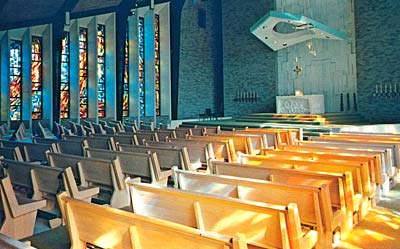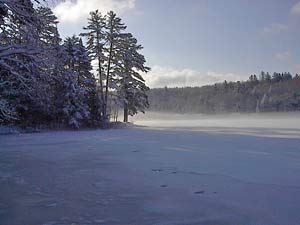




In this unusual collection of poems,Betsy Snider takes us back to her youthful years as a nun, when she tried to escape from a troubled childhood and then struggled to surrender instead to the safety of the convent’s strict rules. Throughout the long course of the writer’s life, her spirit is strong, and the poems later lead us forward to a new life in rural New Hampshire. Often wrought with precise detail, in straightforward and deeply felt language, her poems are suffused with yearning—for a lover, for heat, for Greece, for the sensuous life—as she suffers the silence of both God and love, and struggles to choose between a loss of freedom and freedom’s risks. Always, she desires “anything but this / dread ... where / ... I fall beneath the boots / of doubt.” Revealing a seemingly indefatigable inner life, Snider’s poems do not shrink from pain or despair, and yet hope keeps returning, a “muscle” that flexes like wings to resurrect us time and again. Alice B. Fogel, New Hampshire Poet Laureate, author of Interval: Poems Based on Bach’s ‘Goldberg Variations', and Be That Empty. |
Links to Betsy's work: Lynx Magazine articles (hint:search for Snider
-- in many browsers, Find = Control-F) Lesbian Nuns: Breaking Silence River of Earth and Sky Poet Showcase Love Over 60 |
|||
 |
 |
|||
In Hope is a Muscle, Betsy Snider draws the reader into her world, past and present, through language that shines with perfectly chosen details and the life-giving spiritual energy driving them. “A lifetime ago, I faltered under the weight/ of a head dress and white veil.../only a cold stone floor under my knees./ Now I wait for someone, anyone, to call me/home across the black hole of my longing...” These are poems of calling, resistance and difficult grace. Exposing the intensity at the core of a woman’s life, they read like haunting hymns or prayers to both the physical world and the world of the spirit. I found myself saying again and again, “Yes! It happens this way,” and I finished the book thinking, “This is what poetry is for!” Mary Kay Rummel, Poet Laureate of Ventura County, CA, author of The Lifeline Trembles, and What’s Left is the Singing. |

Betsy Snider’s award-winning book Hope is A Muscle does more than pay lip service to Frost’s road “less traveled.” It truly chronicles a persona’s journey on a path few of us would dare explore, and that, for the reader, makes “all the difference.” Snider’s poetry is best described in her poem “Breakfast in Greece” as “a dense softness inside the hard crust.” But the patience of waiting for that crust to soften where “silence falls like dew in late September”makes it worth the reader’s time and attention: “So I wait, back straight as an arrow,/for Sister Annunciata's song/to point me true north.” The rewards for that patience particularly arrive in the final chapter where one comes face-to-face with almost a century of history distilled to the level of everyman’s family. It perfectly illustrates why the printed book and poetry are essential to the welfare of our culture. Like the life this collection chronicles, the printed page remains unchanged long after batteries run low, mobile devices lose power, hard drives crash without warning, or files become lost or edited in a cloud where everything is one or zero. The page, brittle as it is, remains steadfast as a monument so that: “Five hundred years later,/scientists discover thin bones/and torn feathers atop/three fossilized eggs.” Rodger Martin, author of The Battlefield Guide, and The Blue Moon Series |
 |
 |
First books of poetry are often hesitant, somewhat disjointed and tentative in an author’s first foray into the public. Betsy Snider’s first book, however, is the opposite. Hope is a Muscle is mature, grounded, and exceptionally lucid in its story. The core of this book is Snider’s journey, many years ago, towards, within and out of the convent. Personal, honest, and lyrical, her narratives roll and lap at the shores of grief, darkness, ecstasy and doubt. The rhythm of each poem ---and that of their entirety -- mirrors the rhythm of the daily tasks of the convent: prayer, work, sleep, prayer, work, sleep. Through breath-taking images and metaphors – “unforgiving laundry,” “notes of grace/billow/to the vaulted ceilings/,” “...lost in grief/that breaks through dikes/” --- we feel Snider’s (and the other young novices’) confusion, heartbreak and wonder in the “unraveling” of the hours. These are “quiet” poems, amazingly evocative in their modesty: the feeling of the faded fabric of the habit, the rosary beads that “grew from her/fingers, spooling prayers/,” the hushed yearning for “the spare/hollow of nothing.” One of my favorite recurring images is that of wings: “nubs,” “pinned tight” under scratchy fabric,” “ripped,” “unfurled.” The wings thread through the stories, evoking containment, wanting, dissolution, flight. A remarkable, courageous, and cohesive first book. This core of Hope is a Muscle is flanked by two other sections: the first, “Anthesis: Aegean Fantasy,” is a dream sequence of days and nights on a Greek island with a lover. Snider’s ability to imagine and evoke Greece is uncanny, since she has never been there. But she knows: “all sharp edges and deep black shadows,” “...the waves/that break on the beach of our bodies,” and the clarity with which she shows us her life: “...no dark-eyed lover/waiting..../for me to find my way back to life.” The final section, “Antimatter,” a series of short, contained tales explores the “labyrinths” and “tumults” of an older, contemporary woman who is still deeply and viscerally connected – “my name, a silent echo in the smallest bone.” -- to her past experience as a nun. We walk with Snider as she meditates on dying, aging, loss of love, regret, and acceptance – even celebration --- of whatever has been and is coming: “where scars form/like runes....” and “mercy is scattered like snow in April.” Becky Dennison Sakellariou, author of The Importance of Bone, Earth Listening, What Shall I Cry? The Possibility of Red |
 |
The poems in Hope is a Muscle let the reader into snippets of Betsy Snider’s life. The anthesis and four sections take us to places most have never been. Each poem is a close examination of what drives Snider to write. I am glad she does. Be prepared as you read these poems for the surprises along the way. James Fowler, author of Falling Ashes and Connections to This World. |
|
The poems in Hope is a Muscle let the reader into snippets of Betsy Snider’s life. The anthesis and four sections take us to places most have never been. Each poem is a close examination of what drives Snider to write. I am glad she does. Be prepared as you read these poems for the surprises along the way. James Fowler, author of Falling Ashes and Connections to This World. Taking us from the heat of the land of blue Aegean, olives and ouzo to the austerity of a convent’s blue serge, hymns and rosary beads, Betsy Snider unveils the belief that “hope is a muscle.” Through doubts, family secrets and lost love, these moving poems show there is always a chance for resurrection. Hallelujah! Kyle Potvin, Author of Sound Travels on Water. |
